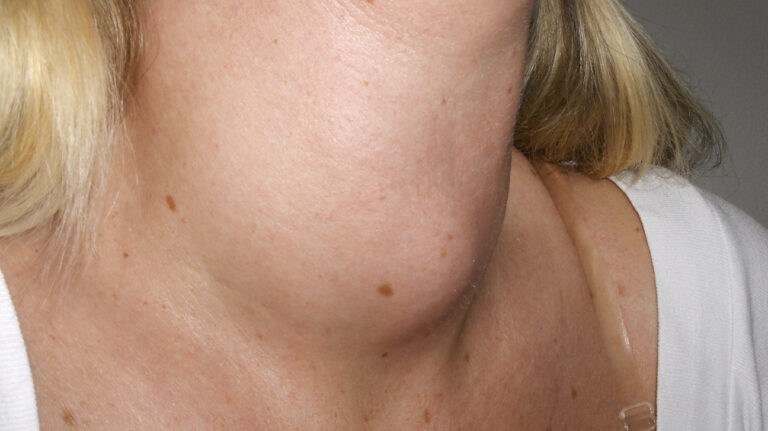Simple Goitre Symptoms
Goitre, a condition characterized by the enlargement of the thyroid gland, often presents with several simple symptoms. While these symptoms may vary in intensity and manifestation, they generally indicate an abnormal growth of the thyroid.
Visible Neck Swelling: One of the most noticeable symptoms of goitre is the swelling of the neck. The thyroid gland, located at the base of the neck, becomes visibly enlarged, creating a noticeable lump or swelling. This can be easily observed and may cause discomfort or pressure in the neck area.
Difficulty Swallowing or Breathing: As the thyroid gland enlarges, it may exert pressure on the surrounding structures, including the trachea (windpipe) and esophagus (food pipe). This pressure can lead to difficulty in swallowing or breathing, causing a sensation of tightness in the throat.
Hoarseness or Voice Changes: The enlargement of the thyroid can also affect the nerves and structures related to the vocal cords. This may result in hoarseness or changes in the voice quality.
Coughing: The pressure on the trachea may induce a persistent cough. This cough may be dry and irritating, and it can become more prominent when lying down.
Throat Pain or Discomfort: Some individuals with goitre may experience pain or discomfort in the throat, especially when swallowing. This can be due to the pressure exerted by the enlarged thyroid gland.
Irritation or Tenderness in the Neck: The swollen thyroid may cause tenderness or irritation in the neck area. This discomfort may vary from mild to more pronounced, depending on the size of the goitre.
It is essential to note that while these symptoms are indicative of goitre, they can also be associated with other thyroid disorders or medical conditions. Therefore, if an individual experiences any of these symptoms, it is crucial to seek medical attention for a proper diagnosis and appropriate management. Thyroid function tests, imaging studies, and a physical examination by a healthcare professional are typically employed to determine the underlying cause of the goitre and to develop an effective treatment plan.





